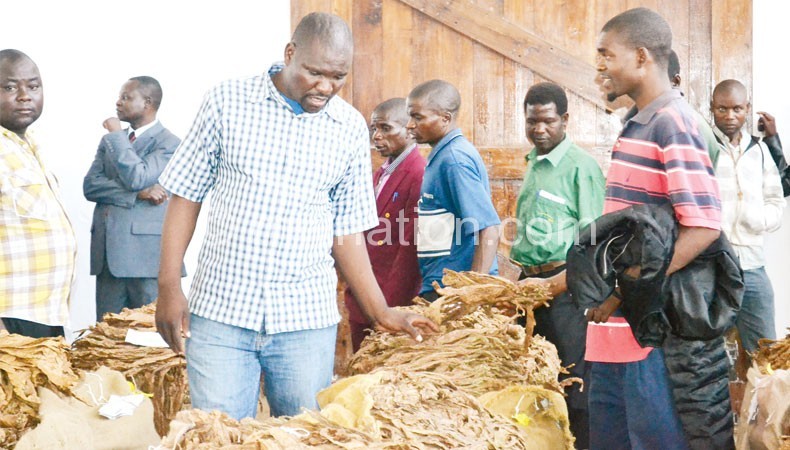Tobacco firm links IPS to diversification

JTI Leaf Malawi has said there is a direct link between Integrated Production System (IPS), a tobacco growing arrangement that enables buyers to establish direct contractual relationship with growers, to diversification efforts away from the leaf.
The firm’s director of corporate affairs and communications Limbani Kakhome said IPS, first introduced and implemented in 2012/13 tobacco growing season as part of wider industry reforms, can also be linked to international regulation particularly the worldwide anti-smoking lobby.
“IPS ensures traceability of the crop right from the field to the market. It also ensures that a set of agronomic specifications and guidelines are followed to sustainably grow the crop and ensure customised crop while improving productivity, quality and integrity of the leaf,” he said in Lilongwe last week at a media capability building workshop on IPS.
Kakhome said the system ensures that buyers work closely with growers to use best methods to grow tobacco by giving them technical support to get the best yield from the land, enabling sustainable return year after year.
The system also encourages growers to also diversify away from tobacco and also grow other crops that could improve their livelihoods, he said, toeing the line of World Health Organisation Framework Convention on Tobacco Control (WHO-FCTC) that, among others, encourages the reduction in the crop size.
Tobacco experts argue there is compelling evidence suggesting that under the IPS, the average tobacco yield per hectare has jumped to around 1 700 kilogramme from 800 kg, according to Tobacco Control Commission (TCC) figures.
Apart from that, IPS support to food production seems to have had a positive impact on farmers’ maize crop harvests, helping them reach 4 500 kg per hectare, which is an increase from the previous average of 2 000 kg per hectare, thus contributing to food security.
This is because part of the land that they used to grow tobacco on has been taken up by other crops such as maize.
The system, according to its proponents, has also improved quality, resulting in an average increase of five percent on price, particularly for the IPS crop.
Tobacco is Malawi’s key export commodity, wiring in more than half of the country’s foreign exchange earnings, contributing between 11 percent and 13 percent to the gross domestic product (GDP), employing 12 percent of the population and make up 25 percent of taxes collected in Malawi.
Under IPS, 80 percent of the crop grown is sold through the contract system in which prices are pre-agreed and remaining 20 percent under the traditional auction system.
But the system, despite receiving praise from tobacco industry regulator and buying companies, has downside effects, according to Auction Holdings Limited (AHL), the country’s sole tobacco auctioneer.
AHL, among others, argues that growers who have opted for auction system are facing delays in getting their dues in time unlike their counterparts under contract farming.
“Farmers that have opted to sell their tobacco through auction system are being discriminated as they are not allowed to sell everyday of the week,” said AHL group chief executive officer Evans Matabwa.
He said while contract farming is benefiting some growers, the same is hurting the other section of growers under auction system.





